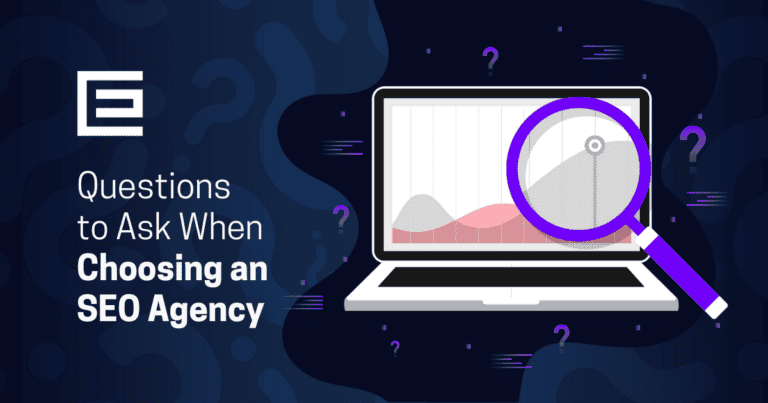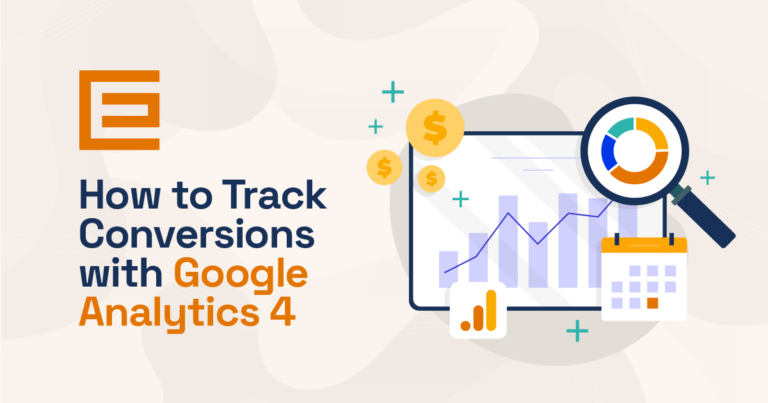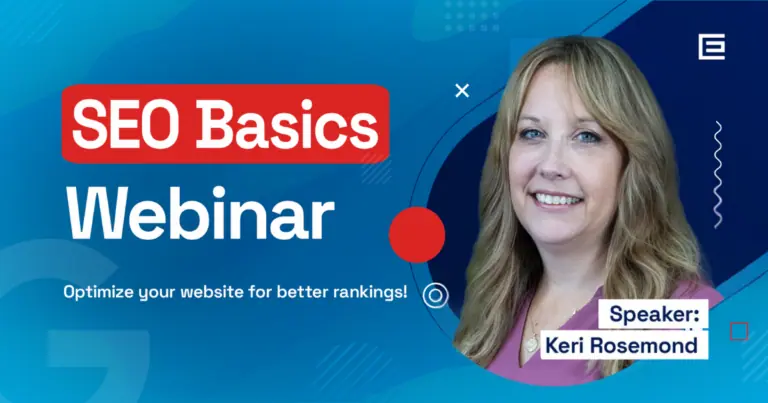Search Engine Optimization (SEO) Return on Investment (ROI) is a critical metric for any digital marketing strategy. It refers to the return gained from the time, effort, and resources invested in SEO activities. In simpler terms, SEO ROI measures the profitability of SEO campaigns, comparing the revenue generated from organic search traffic against the cost of implementing and maintaining SEO strategies.
Measuring SEO ROI helps businesses to understand the effectiveness of their SEO efforts. It’s not just about ranking higher on search engines; it’s about understanding how these rankings translate into tangible business value. By calculating ROI, companies can determine whether their SEO strategies are contributing positively to their bottom line.
Understanding SEO ROI
Defining SEO ROI
SEO ROI, or Search Engine Optimization Return on Investment, is a key performance indicator that measures the efficiency and profitability of your SEO efforts. It’s a metric that quantifies the return gained from the investments made in SEO activities. Essentially, SEO ROI compares the revenue generated from organic search traffic to the costs incurred in implementing and maintaining SEO strategies. This calculation often involves considering various factors, such as the cost of SEO tools, content creation, and professional SEO services, against the increase in revenue attributed to these efforts.
Calculating SEO ROI
Calculating SEO ROI typically involves a straightforward formula: (Gain from SEO Investment – Cost of SEO Investment) / Cost of SEO Investment. This formula helps businesses understand the direct financial gains from their SEO activities in relation to the investment made. A positive ROI indicates that the SEO strategies are effective, generating more revenue than they cost, while a negative ROI suggests the opposite.
SEO and Business Growth: A Symbiotic Relationship
Driving Organic Traffic and Revenue
The relationship between SEO and business growth is symbiotic and profound. Effective SEO strategies lead to higher rankings in search engine results pages (SERPs), which in turn drive more organic traffic to a website. This increased visibility often translates into more leads, sales, and ultimately, revenue. For many businesses, organic search traffic is a major contributor to their overall sales and growth.
Building Brand Authority and Trust
Beyond just traffic and immediate sales, SEO plays a crucial role in building brand authority and trust. Websites that appear at the top of search results are often perceived as more credible and authoritative in their respective fields. This perception not only aids in attracting more traffic but also in establishing a brand as a leader in its industry, which is a crucial component of long-term business growth.
Long-Term Sustainable Growth
Unlike paid advertising, which stops generating traffic the moment you stop paying, the effects of SEO are more enduring. Once a strong SEO foundation is built, it continues to drive traffic and growth over time, making it a sustainable and cost-effective strategy for long-term business success.
In summary, understanding SEO ROI is crucial for businesses to evaluate the effectiveness of their SEO strategies and their impact on overall business growth. By effectively leveraging SEO, businesses can not only increase their visibility and traffic but also establish a strong brand presence and achieve sustainable growth in the digital marketplace.
Calculating SEO ROI
The Basic Formula for SEO ROI
Calculating the Return on Investment (ROI) for SEO is essential to understand the effectiveness of your SEO strategies. The basic formula for calculating SEO ROI is quite straightforward:

This formula gives you the ROI as a percentage, providing a clear picture of the returns relative to the investment.
You can also use our ROI Calculator to help.
Factors Influencing SEO ROI
1. Cost of SEO Efforts
The total investment in SEO includes expenses such as hiring SEO professionals, purchasing tools and software, content creation, and any other related costs.
2. Gain from SEO
This refers to the revenue generated from SEO efforts. It can be direct revenue from sales or the estimated value of the organic traffic received.
3. Time Frame
SEO often takes time to show results. The time frame considered for calculating ROI can significantly impact the perceived effectiveness of your SEO strategies.
4. Attribution Models
Determining how credit for sales and conversions is attributed to SEO efforts can influence ROI calculations. Different attribution models can yield different ROI figures.
Step-by-Step Guide to Calculating SEO ROI
Step 1: Calculate Total SEO Investment
Sum up all the costs associated with your SEO efforts, including personnel, tools, content creation, and any other related expenses.
Step 2: Determine the Gain from SEO
Track the revenue that can be directly attributed to SEO. This can be done through analytics tools that track conversions from organic traffic. If direct revenue tracking is challenging, estimate the value of organic traffic based on average conversion rates and customer value.
Step 3: Choose an Appropriate Time Frame
Select a time frame that is reasonable for your SEO efforts to have had an impact. This could be a few months to a year, depending on the scale and nature of your SEO strategies.
Step 4: Apply the SEO ROI Formula
Use the basic SEO ROI formula mentioned earlier. Subtract the total SEO cost from the gain, divide by the total cost, and multiply by 100 to get the percentage.
Step 5: Analyze and Interpret the Results
A positive ROI indicates successful SEO strategies, while a negative ROI suggests a need for strategy adjustment. Consider the nuances of your specific context when interpreting these results.
Calculating SEO ROI requires careful consideration of various factors. By following these steps, businesses can gain valuable insights into the effectiveness of their SEO strategies and make informed decisions to optimize their digital marketing efforts.
Key Metrics for Measuring SEO ROI
Organic Traffic Analysis
Understanding Organic Traffic
Organic traffic, which refers to visitors coming to your website through unpaid search results, is a fundamental metric for assessing SEO ROI. It’s a direct indicator of how well your site is performing in search engines and how effectively your SEO strategies are attracting visitors.
Analyzing Traffic Trends
Monitoring changes in organic traffic over time can provide insights into the success of your SEO efforts. An increase in organic traffic often suggests that your website is gaining visibility and ranking well for targeted keywords. Tools like Google Analytics can be instrumental in tracking these trends and understanding user behavior.
Conversion Rates from Organic Search
Measuring Conversion Effectiveness
Conversion rate is the percentage of visitors who take a desired action on your website, such as making a purchase, signing up for a newsletter, or filling out a contact form. This metric is crucial for understanding the effectiveness of your website in turning organic traffic into tangible results.
Linking SEO to Conversions
By analyzing conversion rates specifically from organic search traffic, you can gauge how well your SEO strategies are contributing to your business objectives. A high conversion rate from organic traffic indicates that your SEO efforts are not only attracting visitors but also driving them to engage meaningfully with your site.
Revenue Generated from Organic Search
Direct Impact on the Bottom Line
The ultimate goal of most SEO strategies is to increase revenue. Tracking the revenue generated directly from organic search traffic is a clear indicator of SEO ROI.
Attribution and Tracking
Using e-commerce tracking in Google Analytics or similar tools, you can attribute revenue to specific SEO efforts. This allows for a more precise understanding of how much income your organic search traffic is generating, providing a direct link between SEO efforts and financial returns.
Keyword Rankings and Their Impact
The Role of Keyword Rankings
Keyword rankings refer to your website’s position in search engine results for specific keywords. High rankings for relevant keywords are often correlated with increased organic traffic and, by extension, higher SEO ROI.
Tracking and Analyzing Rankings
Regularly monitoring keyword rankings helps in understanding the effectiveness of your SEO strategies. Tools like SEMrush or Ahrefs can provide insights into how your keywords are performing, which ones are driving traffic, and how changes in rankings impact your overall SEO success.
In summary, these key metrics – organic traffic analysis, conversion rates from organic search, revenue generated from organic search, and keyword rankings – are essential for measuring the ROI of your SEO efforts. By closely monitoring and analyzing these metrics, businesses can gain a comprehensive understanding of their SEO performance and make data-driven decisions to optimize their strategies for better returns.
Challenges in Measuring SEO ROI
Long-term Nature of SEO Results
Patience and Persistence in SEO
One of the primary challenges in measuring SEO ROI is the inherently long-term nature of SEO results. Unlike paid advertising, which can offer immediate visibility and results, SEO strategies often take months or even years to fully manifest their benefits. This delay can make it difficult to accurately assess the ROI of SEO efforts in the short term.
The Evolving Landscape of SEO
Furthermore, the ever-changing algorithms of search engines mean that SEO is a moving target. What works today may not work tomorrow, requiring continuous adaptation and reevaluation of strategies. This fluidity can complicate the measurement of ROI, as the impact of specific actions may not be immediately apparent.
Difficulty in Tracking Conversions
Attribution Challenges
Attributing conversions to specific SEO efforts can be a complex task. In the digital marketing ecosystem, a user’s journey to conversion often involves multiple touchpoints, including organic search, social media, email marketing, and more. Isolating the impact of SEO on this journey can be challenging.
Tools and Analytics Limitations
While tools like Google Analytics provide insights into user behavior and conversions, they have limitations. Tracking issues, such as cookie blocking or cross-device tracking difficulties, can lead to incomplete or inaccurate data, further complicating the process of measuring SEO ROI.
The Complexity of SEO Strategies
Multifaceted Nature of SEO
SEO encompasses a wide range of activities, from on-page optimization and content creation to link building and technical SEO. Each of these components contributes to the overall effectiveness of an SEO strategy, but isolating the impact of individual elements can be difficult.
Integration with Other Marketing Efforts
SEO does not exist in a vacuum; it often intersects with other marketing efforts like content marketing, social media, and PPC campaigns. This integration means that the success of SEO can be influenced by, and also influence, other marketing channels. Disentangling these interdependencies to measure the precise ROI of SEO can be a complex task.
In summary, while measuring SEO ROI is crucial for understanding the effectiveness of SEO strategies, it is fraught with challenges. The long-term nature of SEO results, difficulty in tracking conversions accurately, and the complexity of SEO strategies and their integration with other marketing efforts all contribute to the complexity of accurately assessing SEO ROI. Recognizing and addressing these challenges is key to developing a more nuanced and effective approach to measuring and optimizing SEO efforts.
Strategies to Maximize SEO ROI
Focusing on High-ROI SEO Tactics
Identifying Effective Tactics
To maximize SEO ROI, it’s crucial to identify and focus on high-ROI SEO tactics. This involves analyzing past performance data to determine which strategies have yielded the best results. High-ROI tactics often include optimizing for high-converting keywords, creating quality content that addresses user intent, and improving site speed and user experience.
Prioritizing Resources Efficiently
Once effective tactics are identified, resources should be allocated accordingly. This means investing more time and budget into strategies that have proven to drive traffic and conversions, such as targeted content creation or link-building campaigns with reputable sites.
Balancing Short-term and Long-term SEO Strategies
Short-term Wins
While SEO is generally a long-term strategy, there are short-term actions that can yield immediate improvements. This includes optimizing meta tags for better click-through rates, updating existing content to improve relevance, and fixing technical SEO issues that may hinder site performance.
Long-term Growth
For sustainable SEO success, it’s essential to balance these quick wins with long-term strategies. This includes building a robust content strategy, focusing on building domain authority through quality backlinks, and continuously improving the overall user experience of your website.
Continuous Optimization and Testing
The Need for Ongoing Optimization
SEO is not a set-and-forget strategy. Continuous optimization is key to staying ahead in the ever-evolving digital landscape. This involves regularly updating content, ensuring your website adheres to the latest SEO best practices, and adapting to changes in search engine algorithms.
Embracing A/B Testing
A/B testing is a valuable tool in the SEO arsenal. By systematically testing different elements of your website, from headlines to call-to-action buttons, you can continually refine and improve your site’s performance. This data-driven approach helps in making informed decisions that can significantly boost SEO ROI.
In short, maximizing SEO ROI requires a strategic approach that combines focusing on high-ROI tactics, balancing short-term actions with long-term strategies, and committing to continuous optimization and testing. By adopting these strategies, businesses can not only improve their search engine rankings but also ensure that these improvements translate into tangible business results.
Case Studies and Real-World Examples
Success Stories of Businesses with High SEO ROI
E-commerce Success
One notable example is an e-commerce company that focused on long-tail keyword optimization and user experience improvements. By targeting specific, less competitive keywords and enhancing site speed and navigation, they saw a 8x increase in organic traffic and an 8x rise in online sales over a year, significantly boosting their SEO ROI. (learn more about this case study)
Local Business Triumph
A local dental clinic provides another success story. They implemented local SEO strategies, such as optimizing their Google My Business listing and gathering positive online reviews. As a result, they experienced a 167% increase in appointment bookings through organic search, demonstrating the power of localized SEO efforts. (learn more about this case study)
Analysis of Different Industries and Their SEO ROI
The Tech Industry
In the technology sector, businesses often face fierce competition in organic search. However, tech companies that have invested in comprehensive SEO strategies, including technical SEO and thought leadership content, have reported substantial increases in organic leads and customer acquisition, showcasing a high SEO ROI.
Retail and Fashion
For retail and fashion websites, visual search optimization and mobile-friendly designs have been key. By optimizing product images and ensuring a seamless mobile shopping experience, these businesses have seen significant improvements in organic traffic and sales, translating to a robust SEO ROI.
Healthcare Industry
In healthcare, informative content that aligns with user intent, coupled with local SEO tactics, has proven effective. Healthcare providers focusing on these strategies have not only improved their online visibility but also seen a higher patient engagement rate through organic search channels.
In summary, these case studies and industry analyses demonstrate that a well-executed SEO strategy can lead to significant business growth across various sectors. The key to high SEO ROI lies in understanding the unique needs and search behaviors of each industry’s target audience and tailoring SEO efforts accordingly to drive meaningful results.
FAQs
What is the Average ROI for SEO?
Understanding the Variability
The average ROI for SEO can vary widely based on industry, strategy, and execution. Generally, a well-implemented SEO strategy can yield a significant return; some studies suggest an average ROI of around 2.75 times the investment. However, this figure can be much higher in cases where SEO is particularly effective or much lower if not executed properly.
Factors Influencing ROI
Several factors, including the competitiveness of the industry, the quality of the SEO strategy, and the alignment of SEO efforts with user intent, can influence this average. It’s important to note that ROI also depends on how well the SEO strategy is integrated with other marketing efforts.
How Long Does It Take to See ROI from SEO?
SEO: A Long-Term Strategy
Typically, it can take anywhere from six months to a year to start seeing a significant ROI from SEO. This timeframe is due to the nature of SEO as a long-term strategy focused on building organic growth over time.
Early Indicators of Success
While the full financial impact might take months to materialize, early indicators such as increased organic traffic, improved keyword rankings, and higher engagement rates can be observed within a few months of implementing SEO strategies.
Can Small Businesses Achieve a High ROI with SEO?
SEO for Small Businesses
Absolutely. Small businesses often benefit greatly from SEO because it allows them to compete with larger players by targeting niche markets and local searches. With a focused approach, small businesses can achieve a high ROI by attracting targeted, high-intent traffic to their websites.
Cost-Effectiveness of SEO
SEO is particularly advantageous for small businesses due to its cost-effectiveness compared to many other marketing channels. By focusing on local SEO, content marketing, and on-page optimization, small businesses can see substantial growth in organic reach and customer engagement.
How Does SEO ROI Compare to Other Marketing Channels?
SEO vs. Paid Advertising
SEO often offers a higher long-term ROI compared to paid advertising channels like PPC (Pay-Per-Click). While PPC can generate immediate results, its effects are short-lived and stop as soon as the advertising budget is depleted. SEO, on the other hand, can continue to yield results long after the initial investment.
Complementing Other Marketing Efforts
SEO also complements other marketing channels such as content marketing, social media marketing, and email marketing, enhancing the overall effectiveness and ROI of these strategies. The integrated approach of SEO with other channels often results in a cumulative positive impact on ROI.
Final Thoughts
SEO ROI can serve as a benchmark for the success of digital marketing efforts. It helps businesses to not only track their progress but also to set realistic goals and expectations. In a landscape where digital marketing investments are scrutinized for their value, having a strong grasp on SEO ROI is crucial for justifying and continuing investment in SEO initiatives.
Future Trends in SEO and Their Impact on ROI
The Rise of AI and Machine Learning
The integration of artificial intelligence (AI) and machine learning in SEO is set to revolutionize how we approach optimization. These technologies are expected to make SEO strategies more data-driven and precise, potentially increasing the ROI by enabling more targeted and effective optimization techniques.
Voice Search and Mobile Optimization
With the increasing use of voice assistants and mobile devices, optimizing for voice search and mobile users is becoming more important. Businesses that adapt to these trends by optimizing their content for natural language queries and ensuring mobile-friendly websites are likely to see a positive impact on their SEO ROI.
User Experience as a Key Ranking Factor
As search engines continue to evolve, user experience (UX) is becoming a more significant ranking factor. Websites that offer a seamless, engaging, and valuable user experience are likely to rank higher, driving more organic traffic and potentially increasing ROI. This shift emphasizes the need for a holistic SEO strategy that goes beyond keywords and backlinks to include user-centric design and content.
In summary, the importance of measuring and maximizing SEO ROI cannot be overstated. It is a critical component of successful digital marketing strategies. Looking forward, staying abreast of emerging trends and adapting SEO strategies accordingly will be key to maintaining and improving ROI. As the digital landscape continues to evolve, those who effectively leverage these changes in their SEO practices are likely to see the most significant returns on their investments.







